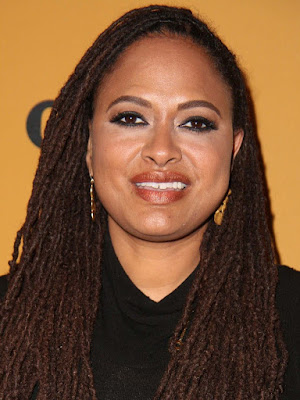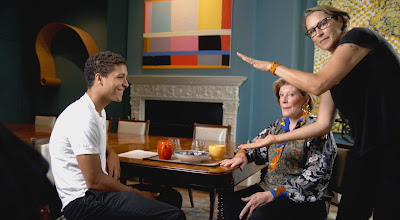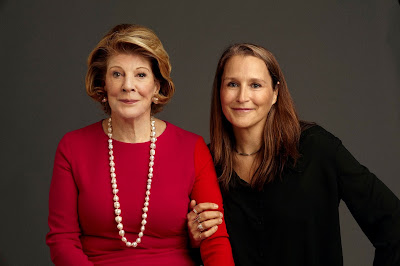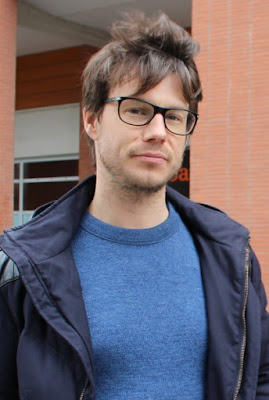"It took many years of vomiting up all the filth I have been taught about myself and half-way believed before I could walk around this earth like I have the right to be here. I have the right. You have the right. We all have the right…"
--Billy Porter accepting his ground-breaking Emmy award for the lead in POSE, 9/22/19
"Equality, citizens, is not …a neighborhood of jealousies emasculating each other; it is...all aptitudes having equal opportunity; ...all votes having equal weight; ...all consciences having equal rights. Equality has an organ: … instruction. The right to the alphabet, we must begin [with] that."
-- from
Les Miserables, Victor Hugo, vol 2, p 470
Marius: What could be greater than to serve under Napoleon?
Enjolras: To be free. I want to be a citizen of the Republic, not a subject of the king or an emperor. And one day we’ll all be fighting about that on one side or another….
-- from the new Andrew Davies' adaptation, chapter 4
Victor Hugo’s tale is such a potent parable that new versions arrive regularly. The latest of many (books, comics, manga, over 50 films, 23 tv productions; radio versions, musicals, concerts, games, animations, plays) now includes a derivative
Les Miserables, the 2019 Cannes prize winner and France’s candidate for best International Feature Film in our next Academy Awards (optioned by Amazon for US distribution). Director
Ladj Ly tells the story of 2005 riots by young blacks routinely harassed by police in Montfermeil, the Paris suburb where Hugo’s thieving duo, the Thenardiers, kept their inn.
Our subject here is a traditional and reportedly quite book-faithful version now streaming on
PBS Passport (or through
Amazon) — a 2018 BBC/PBS 6-part drama adapted from the novel by classics interpreter
Andrew Davies, above (of
Mr. Selfridge,
House of Cards and
Bridget Jones' Diary); it is nostalgically cinematic with a movingly quiet score.
Hugo (1802-1885) began scoping out his greatest tome during the June rebellion of 1832 against royal Louis-Philippe, who had replaced Charles X in 1830, but whose moderation did not satisfy republicans.* Hugo was to publish 18 volumes of poetry during his lifetime, 7 novels, 21 plays, was an elected politician, and produced 4000 drawings. (Delacroix wrote that if Hugo had published his art, he would have outshone the artists of their century.) But English speakers know him best through two novels:
The Hunchback of Notre-Dame (1831) and
Les Miserables (1862), the latter being “...the crowning point of my work”.
It was a giant canvas for all his, now our, social views — a modern bible. Contemporary critics found fault (Flaubert saw “neither truth nor greatness”; Baudelaire called it “repulsive and inept”) but the public agreed with Hugo — he was their media genius. The French National Assembly took up the issues of social misery and injustice. (Below, Emile Bayard’s famous sketch of Cosette for original printing of the novel.)
Hugo’s adulthood included the second and third of France’s five republics (we are in the Fifth: 1958—). Politics was in his blood; his parents’ views clashed — his father was a high ranking republican officer serving Napoleon, his mother a Catholic Royalist. And after the French Revolution of 1789, the government rocked back and forth between Royalists and Republicans. Hugo’s passions were ignited by pervasive misery made worse by failed harvests, food shortages, cholera, inflation, recession.
He had been guided by his mother’s devotion to king and church before rebelling against her conservatism in his maturity (the trajectory of Marius in the novel is said to have been reconstructed from memories of his poor student days). Later as a member of the French assembly, he was so outspoken a republican he was forced into exile for decades, mostly on the channel island of Guernsey. He presciently called for a “United States of Europe”, a free press, universal suffrage, free education, and abolition of the death penalty. (He did not advocate for racial equality in which our
Billy Porter can at last somewhat rejoice, and the issue now invoked by the 2019 black-directed French
Les Miserables). But Hugo’s brilliance and literary output led to the French celebrating him as their poet of the common man, to his burial in the Pantheon, mausoleum for heroes, and to his influence on writers like Camus, Dickens, and Dostoyevsky.
Critics have decried the absence of depth in the main characters in the 2012 musical “Les Miz“. They are, however, Hugo’s poster-children of his political arguments against the power imbalance between the 1% and 99%, making ‘Les Miz’ an operatic parable, not a story driven by interpersonal relations.
Andrew Davies’s version is a much richer prose telling in which the characters lift off the poster boards, taking six episodes to humanize the stories of the have’s and have-not’s based on Hugo’s near 2000-page bible; its depth and detail increases one’s absorption in the lives of the trod upon, still unsettled by dictatorship but lurching toward democracy. It was the students who stood on the ramparts; in 1832 most of them died. (Below, Marius, l, and Enjolas, freedom fighters.)
But even this version is less interpersonal, more of a poignant dialectic based on Hugo’s social politics.
Dominic West (
The Wire,
The Affair) is Jean Valjean, the wretched criminal, freed after 20 years brutal hard labor for stealing a loaf of bread (below).
David Oyelowo (Martin Luther King in
Selma), the near-sex-obsessed policeman and single-minded antagonist, Javert, is hot on Valjean’s trail in a mortal struggle that ends only with the novel.
Lily Collins (
To the Bone) is angelic seamstress, Fantine, who fatally ignores warnings about rich young men who come to play;
Ellie Bamber (
Nocturnal Animals), her daughter, Cosette, for whom the abandoned Fantine toils, sells her hair and teeth (last image) to pay Cosette’s keep;
Josh O’Connor (
The Durrells in Corfu, upcoming as Charles in
The Crown), is young nobleman, Marius, who loves Cosette (below).
Marius is ordered to leave home after defying his grandfather’s aristocratic views.
David Bradley, below (Walder Frey in
Game of Thrones), is the rouged, cosseted old man in his silks — magnificent, pathetic, spurned.
The scurrilous Thenardiers,
Olivia Colman (below, right, from
The Favourite) and
Adeel Ahktar (below, center, of
Murdered by My Father), are petty thieves and droll scene-stealers (Coleman’s most irresistible role) who blithely scam and pilfer (no redemption there) and offer comic relief. Below they are smarming Fantine, promising to love Cosette as their own.
Derek Jacobi (
Good Omens) is the goodly bishop whose kind forgiveness sets our hero Valjean on his slow road to redemption.
Javert, Valjean’s former jailer, now the new chief of police, meets up with Valjean who has become a prosperous factory owner whom Javert doesn’t recognize:
Javert: ‘I’m told you have restored the prosperity of the town ... Consequently there is very little crime here.’
Valjean: ‘Yes I like to think that that is so.’
Javert: ‘But a thief does not steal because he is poor and desperate;
He steals because he has a criminal mentality— because he is degenerate...wicked.’
Valjean: ‘...I have to tell you that there we disagree…I believe most of us are capable of good and evil, but how we turn out depends on our circumstances and how we are treated.’

Valjean does not believe his own words: ‘I am nothing’, he says, having been spat upon so long. It is Javert’s eventual recognition of the uselessness of cruelty and Valjean’s forgiveness of himself for crimes of society that give this parable its heart.
But a system so favoring the rich 1 % is worth more didactic spelling out of Hugo’s views than Andrew Davies extracts from the novel even in 6 chapters. Perhaps double the episodes would prod us toward justice now, here. Even if you think you have been-there-done-that, do watch this version. You will still be moved by the contemporaneity of its message and beautiful telling.
*Note: this
article sets the political scene for ‘Les Miserables’ in 1832, 43 years after the French Revolution.
The above post was written by
our
monthly correspondent, Lee Liberman






















































